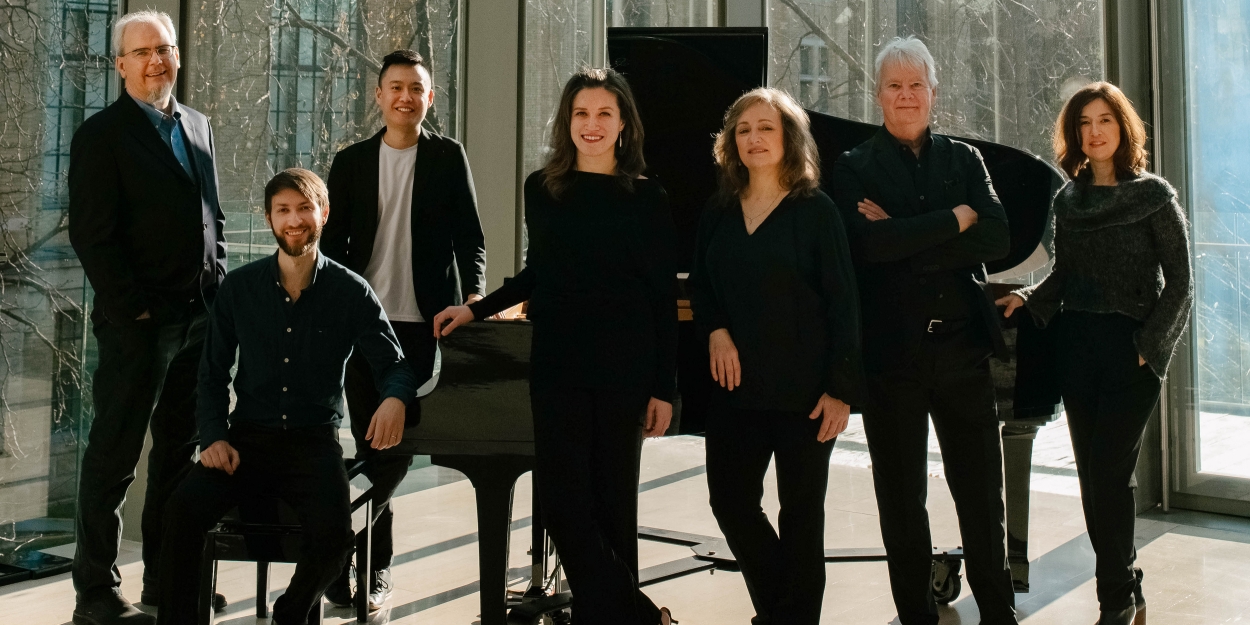ARC Ensemble to Perform World Premieres by Lost German-Jewish Composer Robert Müller-Hartmann
After 80 years of neglect, the “Chamber Works by Robert Müller-Hartmann” will be released on November 17, 2023.

Robbed of time and opportunity, the German-Jewish composer Robert Müller-Hartmann (1884-1950) has been relegated to little more than a footnote in musical history, better known for his association with Ralph Vaughan Williams than for his own works. In the seventh of its highly praised “Music in Exile” series for Chandos Records, the ARC Ensemble (Artists of the Royal Conservatory) reintroduces the chamber works of a gifted composer who fled from Hamburg to England with the rise of Nazism. His career never recovered, and his music remained forgotten…until now.
The ARC Ensemble, now celebrating its 20th anniversary, continues to provide a voice for the hundreds of superbly-trained and highly gifted composers—many graduates of Europe’s most prestigious conservatories—whose careers were disrupted by anti-Semitism and bigotry, and who were forced into exile. Since its inception, ARC’s unique focus has set it apart from other ensembles–-almost every work in its discography is a new and historically significant addition to the catalogue. After 80 years of neglect, the “Chamber Works by Robert Müller-Hartmann” will be released on November 17, 2023, the first recording of his music featuring a selection of brilliant and engaging chamber pieces that are fully deserving of a wider audience.
Nominated for several Grammy, JUNO and OPUS Klassik Awards, the ARC Ensemble comprises senior faculty of The Royal Conservatory’s Glenn Gould School in Toronto, Canada, with special guests drawn from the organization’s most accomplished students and alumni. Its concerts, recordings and broadcasts have garnered rave reviews and a dedicated local and international following.
Simon Wynberg, Artistic Director of the ARC Ensemble, acknowledges that Müller-Hartmann has been on his radar for a while. “He was an émigré people knew about because of his relationship with Vaughan Williams, but no one had bothered to examine his music” he says. “When I met the composer’s grandson in Jerusalem, he arrived with a huge sports bag and a backpack crammed with manuscripts and early editions of Müller-Hartmann’s scores, but the family had never heard a note of his music.”
Like so many of his contemporaries, Robert Müller-Hartmann had a broad range of intellectual interests, in addition to his professional responsibilities as a composer, teacher, administrator and musicologist. He enjoyed considerable success in Germany with major conductors like Richard Strauss, Fritz Busch, and Otto Klemperer performing his works. Fired from his post at Hamburg University in 1933, he taught at a Jewish girls’ school before fleeing to England in 1937.
In England, Müller-Hartmann spent much of his time in Dorking, some 25 miles south of London, where he and his wife lived with Eugenia and Jacob (Yanya) Hornstein, old friends from Hamburg. Through Gustav Holst’s daughter Imogen, he met Ralph Vaughan Williams, who became a supportive friend and colleague, and helped to curtail Müller-Hartmann’s interment on the Isle of Man, where Jewish internees ran the risk of cohabiting with Nazi sympathizers. Despite his connections to influential British musicians, Müller-Hartmann’s career stalled and his music was forgotten; this was in part the result of the war and the economic privations that followed, but also due to his modest and retiring personality, as well his early death in 1950.
In a letter to his son Rudy, he wrote:
“My experiences as a musician in this country also protect me from giving in to illusions about the future. I have friends among my English colleagues, but the majority of English musicians don't want to have anything to do with the refugees. A few days ago Vaughan Williams asked me to orchestrate the piano accompaniment of one of his songs for a radio broadcast. I accepted this certainly very honourable and well-paid commission with pleasure but see it as nothing more than a very friendly gesture by the leading English composer towards one of the uprooted, for whom unfortunately nothing more can be done. The sober realization of my professional situation sometimes makes me a little sad, but never despondent or unwilling to work. Besides, we are doing quite well and a thousand times better than so many others.”
“It had been a steep descent from the recognition and comfort of Müller-Hartmann’s Hamburg life to the anonymity and the sporadic work that England offered,” Wynberg says. “Nevertheless, he remained a consummate professional and a reliable colleague.”
Müller-Hartmann and his wife Lisbeth had three children. An affair with Eugenia Hornstein, who was 24 years his junior, produced another child, Eva, who only discovered the identity of her father in her thirties. Hartmann’s daughter Susanna was involved with Yanya Hornstein, a romantic entanglement that likely began prior to her parents’ arrival in England, when she worked for the Hornsteins as a nanny.
The pieces included on “Chamber Works of Robert Müller-Hartmann,” were likely written between the early 1920s and mid-1930s, and feature two captivating pieces for cello and piano: the Meditation and Elegy, the Sonata for Violin and Piano, op. 5 (dedicated to his friend, the legendary pianist Artur Schnabel), the Sonata for Two Violins, op. 32, characterized by the violin duet’s dramatic contrapuntal interplay, the Three Intermezzi and Scherzo for Piano, op. 22, brief but technically demanding works, and the dramatic String Quartet No. 2, op. 38. “They are outstanding evidence for Müller-Hartmann’s inclusion in the classical repertoire,” says Wynberg, “His music is unashamedly Romantic, with echoes of Schumann, Strauss and Franck, and he had that perfect combination of a wonderfully thorough training and no shortage of terrific musical ideas.”
The ARC Ensemble recording features violinists Erika Raum and Marie Bérard, violist Steven Dann, cellist Tom Wiebe, and pianist Kevin Ahfat.
Videos

